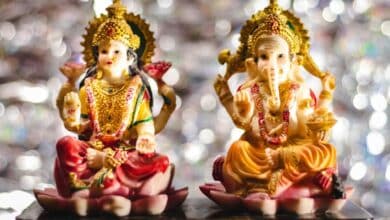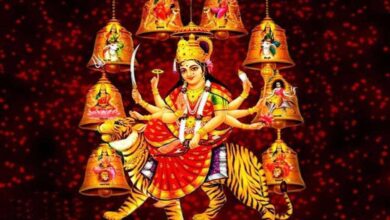Man has always wondered about a lot of things, but for none other is he more clueless than the question of Genesis. One of the fundamental questions that exists since the beginning of human consciousness is about the beginning of the universe. We have all tried to rationalize it in some manner or the other and even all the fields of study have had their different theories about it. And yet, to date we do not have an answer for sure.
Sure, we’ve made great advances in answering the question. We’ve seen past millions and billions of years and today we know about the beginning of the solar system, the big bang theory and we may even have a valid theory of multiverses in the near future. But no matter how far back we go, and no matter how far back we explore, we’re still no close the answer than we were to begin with. The question about when exactly did the true genesis from nothingness started and if at all there was nothingness, what was before the nothingness or how long the nothingness existed.
The question of Genesis is not just a question, but it is a life-situation. Just like we do not have an answer to the question of Genesis, we do not have an answer to a lot of life situations. Just like we have this one unsolved questions, we have many other unsolved questions in each of our lives. And just like humanity has chased down the question for generations, we too chase down those situations or questions of our lives. Desperate for an answer.
Just like humanity has spent a major part of its history, both religious and scientific, in search of the answer; we too, have spent a major part of lives chasing down questions and situations we have absolutely no answers for.
Think about it for a bit before you read ahead. Is there not something in your life that you’ve desperately been chasing for years? A question that is still unanswered? For some it can be why they cannot stop loving someone, for others its a question of understanding a concept or perhaps several questions day in and day out that disrupt your life. Have you not lost sleep pondering about something for days? Have you not been restless because you could not figure out a question, a situation, a person, an emotion or something? Is there not something that you’re chasing since long?
If yes, then should not there be a solution? Should not there be some way of handling that pressure?
For the question of Genesis or Creation, everyone has tried explaining it differently. Science has tried tracing it back with the best of tools they have. Religion has tried to establish God as the creator who created the world in 7 days, or 3 days, or in an instant etc.
The Puranas, which are Indian mythological texts, say God is responsible for the creation. And then depending on the Purana that you’re reading, the creator changes. In the Shiva Purana, Shiva is the Supreme God and the ultimate creator and destroyer. In Vishnu Purana, Vishnu is the creator and destroyer. While in Bhagvad Purana, Krishna is the creator is and destroyer.
It is for this reason that these texts have been questioned from time to time by readers on their authenticity. The allegation is that the since the texts vary in their description of who the Supreme God is, and the tales of creation keep on changing, they cannot be trusted.
Now, this is partially correct but not completely. It is true that the Puranas should not be trusted as scientific documents. That is simply not the purpose of the Puranas. In the Vedic system, the texts are divided into two categories:
- Shruti – That which has been heard and validation by the author themselves.
- Smriti – That which has been passed down by memory.
Shruti, which is the actual group of works which pass on knowledge include the Vedas and the Upanishad.
Smriti, which is more of a historical document that traces stories, cultures and passed down knowledge is good for reference purposes and for understanding the matter being discussed but is not authentic in technical aspects.
Sadly, today since the study of Vedas is almost extinct, the Puranas or Smriti texts is what people often go by and end up misinterpreting. The sole purpose of creation stories in Puranas is to establish the supremacy of the deity and invoke devotion from the reader. The point there is not to answer the question of creation, but to develop faith.
The Vedas however, in their supreme excellency deal with the subject of genesis in a very unique way the likes of which can not be found in any text on the subject. Below is the excerpt from Nasadiya Sukta from Rig Veda which discusses Genesis.
Genesis In Vedas
नासदासीन्नो सदासीत्तदानीं नासीद्रजो नो व्योमा परो यत् |
किमावरीवः कुह कस्य शर्मन्नम्भः किमासीद्गहनं गभीरम् ॥ १॥
Neither was there existence, nor non-existence,
Neither was there air, nor the space beyond it.
What was it that covered everything? Where? With whom?
Was there any fluidity hidden in depths unfathomed?
न मृत्युरासीदमृतं न तर्हि न रात्र्या अह्न आसीत्प्रकेतः |
आनीदवातं स्वधया तदेकं तस्माद्धान्यन्न परः किञ्चनास ॥२॥
Neither was there death, nor immortality.
Neither was there then, the night or the day.
It was then, that He breathed Himself into existence on His own.
And there He was there, and no one other than Him.
तम आसीत्तमसा गूहळमग्रे प्रकेतं सलिलं सर्वाऽइदम् |
तुच्छ्येनाभ्वपिहितं यदासीत्तपसस्तन्महिनाजायतैकम् ॥३॥
Darkness was there, engulfed and wrapped in darkness.
All that was there, was the divine unillumined cosmic fluid.
He, who came to be on his own, was wrapped in nothingness.
And at last, with His own heat, He awakened.
कामस्तदग्रे समवर्तताधि मनसो रेतः प्रथमं यदासीत् |
सतो बन्धुमसति निरविन्दन्हृदि प्रतीष्या कवयो मनीषा ॥४॥
In the beginning, desire descended on Him.
And desire became the seed of creation from which everything arose.
Hence, wise men who have searched in their heart with wisdom,
Know that whatever is and is not, is Him.
तिरश्चीनो विततो रश्मिरेषामधः स्विदासीदुपरि स्विदासीत् |
रेतोधा आसन्महिमान आसन्त्स्वधा अवस्तात्प्रयतिः परस्तात् ॥५॥
And so the wise know everything within and out is the same.
That what is above and what is below is the same.
That it is Him whose being pervades the nightly forces of nature.
And that which is, is akin to that which is not, which is only Him.
को अद्धा वेद क इह प्र वोचत्कुत आजाता कुत इयं विसृष्टिः |
अर्वाग्देवा अस्य विसर्जनेनाथा को वेद यत आबभूव ॥६॥
But who knows for sure? And who can say,
From where it all came and how creation happened?
The Gods, deities, you and me are all born later than creation.
So who knows truly whence it came to be and how?
इयं विसृष्टिर्यत आबभूव यदि वा दधे यदि वा न |
यो अस्याध्यक्षः परमे व्योमन्त्सो अङ्ग वेद यदि वा न वेद ॥७॥
When did creation came to be,
And whether He fashioned it or he did not?
He, who surveys everything from the highest heaven,
He may know, or maybe even He does not know!
Nasadiya Sukta, Rig Veda 10:129
To summarize:
- The root of creation is desire. The Supreme Being, by His own choice, split Himself into the world and became the world. So, the world is Him and He is the world. Each and every bit of the world, each and every bit of you and me.
- The Vedas hold that since every bit of creation came after the Genesis itself, including the deities, gods, elements, humans, etc. nobody can know for sure about how it all began.
- The Vedas go so bold that they say that perhaps even the Supreme Being Himself cannot say when it all began as he too may have come later than the Genesis.
- The verse ends by stating that while we can look within, observe and conclude that everything in the world is a bit of Him, we cannot say for sure when it all began and there can be no answer to the question. The verse and the Vedas treat this very unknowability as wisdom and move ahead.
Reflections
While it is true that every word of the Vedas is priceless and even the minutest of observations in the Vedas are keys that open numerous locks at once. However, the Nasadiya Sukta (Hymn of Creation) is something that holds an even special importance.
The Nasadiya Sukta reflects the attitude one needs to have towards learning and towards life to move towards perfection. It covers the imperfection of human life with such finesse that it is probably impossible to find another parallel to this. Apart from what the Rig Veda says in the Nasadiya Sukta, it also hints at the limitations of man and the world. Instead of chasing an unanswerable question, the Rig Veda takes the questions, tries to explore it to the best extent, acknowledges its own limitations and moves ahead.
The Nasadiya Sukta reveals a very important lesson that not all questions are supposed to be answered. Not all battles are meant to be fought and not all situations are to be endured. While it is important to go on a quest in search of truth, it is equally important to understand your limitations and rearrange your priorities. Battling a lost cause while losing on other important fights is not the way a wise man should function. True wisdom knows when to focus, where to focus and what to prioritize. It is absolutely fine to not know everything and it is absolutely fine to move on to another question without answering the first one.
An unanswered question, an unresolved issue, an unaddressed problem is the source of all the trouble to our minds and to our lives. Answers, resolutions and solutions are what bring peace to us because them the source of the trouble, the question or the issue or the problem is gone. We’re always given endless suggestions and advise on how to get our issues resolved and how to seek answers. But this is not the only thing we need to do.
Learning how to drop a question, how to let go off an unresolved issue and how to pass by an unaddressed problem is also equally important, or rather more important. If you’re losing your sleep over a problem or an issue, if something has brought complete chaos into your life, it is probably a question that cannot be answered. And because you’re trying to answer/resolve it, you’ve caught in an endless loop from where there is no escape. No matter how much you search or you struggle, an unsolvable question will remain unsolvable. And as long as the question remains, trouble would remain. Unrest, disturbance, anxiety, frustration would remain.
So, a major lesson to learn in life, is to learn how to drop a question or an issue if it cannot be answered. Remember, for as long as the question remains, trouble remains. So either the question needs to be answered, or the question needs to be dropped.
To drop a question is to accept the fact that the question cannot be answered. To drop a problem, is to stop looking for closure, to simply let it go right here and right now, just as it is. With no further struggle, no further expectation, no further search, no further efforts. To simply press delete and stop the search for resolution and move on to the other questions in life, to the other challenge and to the other problems that you can and must solve.
And in a nutshell, this is what “let go” means. It means to drop right here right now, with no expectation of closure, no concrete answer, no resolution and no guidance. It simply means to accept what exists today as the final and not search beyond. Because searching an answer for an unanswerable question is a waste of effort and the only thing it does is, it ensures the question and the struggle associated with the question will continue to survive and continue to torture you from within.




Thank you Arsh for the wonderful post.. While reading the translation in English, something in hindi I had heard long back came to mind. Now I know the title song of doordarshan’s ‘Bharat Ek Khoj’ was the translation of this sukta from rig veda and not penned by some average lyricist (which is what many of the 90’s kids could have thought of it:)
सृष्टि का कौन है कर्ता?
कर्ता है या है विकर्ता?
ऊँचे आकाश में रहता
सदा अध्यक्ष बना रहता
वही सचमुच में जानता
या नहीं भी जानता
है किसी को नही पता
नही पता
नही है पता
नही है पता
– https://hi.wikipedia.org/wiki/भारत_एक_खोज#बोल